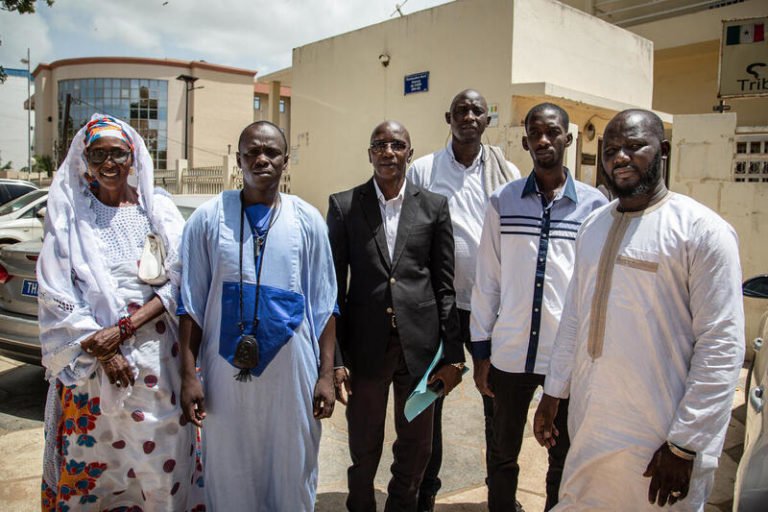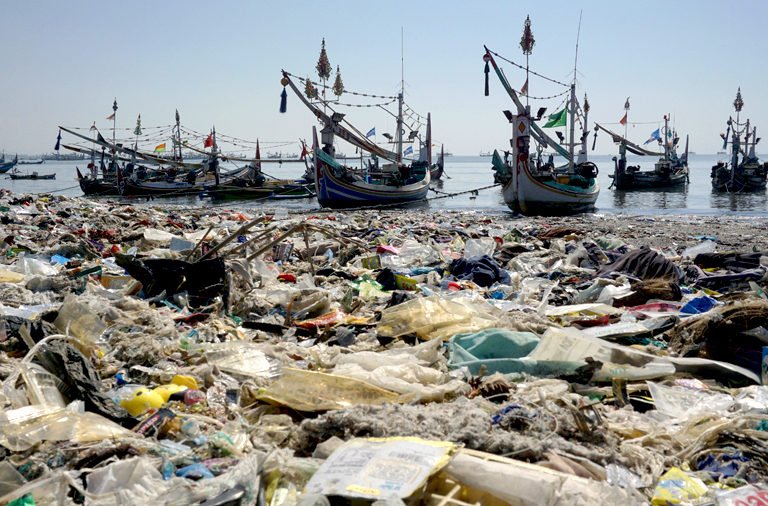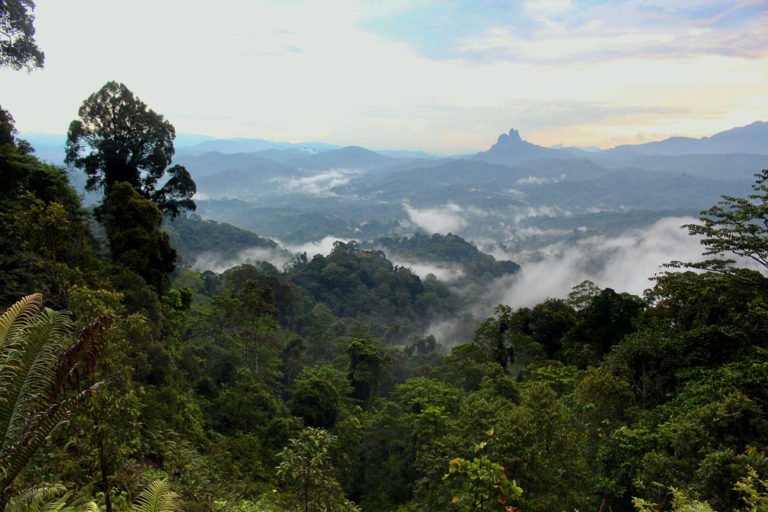- A fishers’ collective in Cayar, east of Dakar, says a fishmeal factory there is jeopardizing livelihoods and endangering public health.
- Analysis in September of water from a lake revealed pollution by biodegradable organic matter causing deoxygenation that is harming aquatic life.
- Some residents of Mbawane, in Cayar municipality, say the fishmeal company’s operations are a good thing, making use of surplus fish which would otherwise rot on the beach.
DAKAR — A fishers’ collective called Taxawu Cayar has brought a case before the Senegalese courts to demand the closure of a fishmeal factory in the Grande Côte area, around 60 kilometers (37 miles) from the capital, Dakar.
Since 2020, Touba Protéine Marine (TPM), previously known as Barna Sénégal, has processed dried fish into fishmeal, which is then sold as fertilizer or animal feed to customers in Europe and Asia. According to the Senegalese branch of the environmental NGO Greenpeace, it takes 5 kilograms of fish to produce 1 kilo of fishmeal.
“Fishmeal factories like the one in Cayar deprive local populations of their fish and export it in the form of fishmeal and fish oil to Europe and Asia for animal feed,” says Aliou Ba, leader of Greenpeace Africa’s oceans campaign, which is supporting the collective’s lawsuit.
According to Ba, fishmeal factories undermine the food security of millions of people in the Global South to the benefit of rich countries. TPM, he says, competes with local food markets, pushes fishers and vendors into bankruptcy, and deprives Senegalese households of regular access to affordable fish.
For the leaders of the Taxawu Cayar collective, the opening of Touba Protéine Marine has provoked social unrest and health problems in the town.“There are between 300 and 400 women processing fish here,” says Mamadou Leye, Taxawu Cayar’s secretary. “Today most of them are lack the resources needed for their daily work.” He adds that many local inhabitants are increasingly suffering from respiratory diseases and other chronic infections linked to the fishmeal processing plant.
“For any stranger who comes to Cayar, it is enough to sniff the wind to understand the difficulties we are facing,” Sy says. The factory pollutes the environment and deprives fishers as well as fishmongers of their daily subsistence, he said after a Sept. 22 hearing before the high court in Thiès, East Dakar.
On Aug. 20, the collective held a march to protest Touba Protéine Marine’s continued presence. The start of the court hearings on Sept. 22 marked a new stage in the fishers’ long battle against Touba Protéine Marine. Proceedings were adjourned to Oct. 6 at the request of the company, according to the collective’s lawyer, Demba Ciré Bathily.
“The factory has infringed the environmental code several times and the impact study carried out before its opening presents enormous shortcomings. We remain confident that this case will lead to the closure of this factory,” he said.
The company maintains that the collective’s accusations are unfounded and that the factory poses no danger to Cayar. Despite the alarming results of a chemical analysis of the water in Cayar carried out at the collective’s request, Talla Gueye, head of communications for Touba Protéine Marine, said the facility’s operations do not pollute the environment in Cayar. “The director and numerous workers live next to the factory and nobody has been diagnosed with illnesses due to the impact of the water,” he told Mongabay.
The factory was set up at a time when there was a surplus of fish abandoned on the beach, Gueye said. Today, residents want this factory as it provides many jobs, he added. Speaking to local press, some residents of Mbawane, a village in the municipality of Cayar, agreed, saying the company’s activities have solved a problem of excess fish rotting on the beach.
Greenpeace recently warned of how declining fish stocks are impacting the earnings of the estimated 825,000 people in Senegal whose income depends on fishing. According to an FAO report cited by the NGO, the main species of fish targeted by the fishmeal and fish oil industry are overexploited. The exhaustion of small pelagic species stocks, according to the document by U.N. experts, constitutes a serious threat to food security in West Africa.
For Maty Ndao, a fish processor in Cayar, the request by the company to adjourn the trial is a way for the factory’s management to try to find a way to dissuade the collective. “But we are ready, the scientific proof which we have will show the whole world that they have broken the law,” she said in a Greenpeace press release. “The fact that the former owners [the Spanish who gave way to the Senegalese] fled after we protested against them makes us even more determined in our fight. They are polluting the earth and drinking water and destroying the sea. Our town stinks of a terrible putrid smell. Our children’s health and our ability to earn a living are at stake. That is why we will never give up.”
Contacted by Mongabay, the Senegalese ministry for fisheries and the maritime economy said it is also monitoring the matter, which is now in the hands of the courts.

A fatal stabbing sends a Gambian fishing village into turmoil over fishmeal
Banner image: Members of Taxawu Cayar protesting the fishmeal factory they say is competing with local processors for fish. Image © Greenpeace / Annika Hammerschlag.
FEEDBACK: Use this form to send a message to the author of this post. If you want to post a public comment, you can do that at the bottom of the page.











